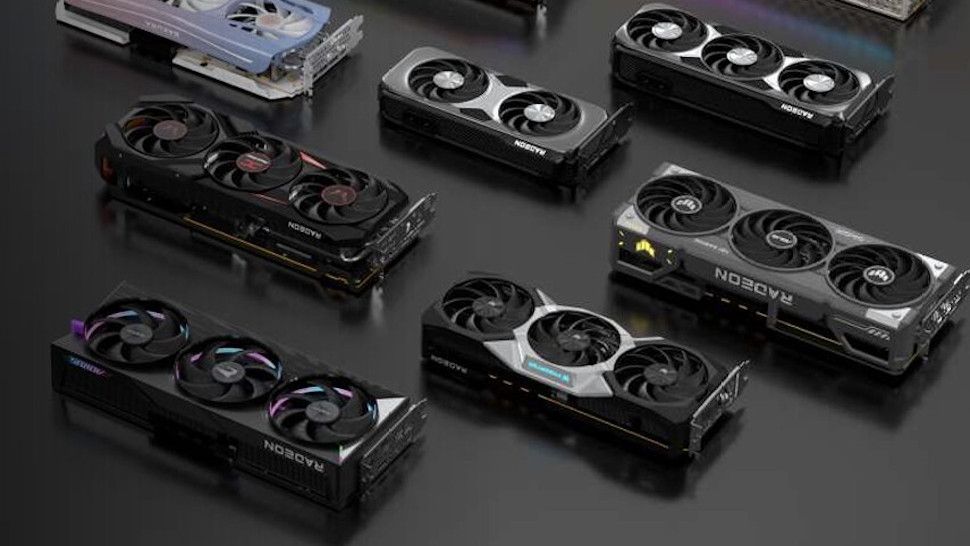This week millions came face to face with AI-generated versions of themselves thanks to the app Lensa, which uses machine learning to spit out illustrations based on photos. People took to social media to reflect on how the portraits made them feel – and who will lose if AI art goes mainstream.
“I think I have a pretty decent self-image, but I looked at the pictures and I was like, ‘Why do I look so good?'” said James, a Twitch streamer who declined to give his last name to um keeping social media exposure separate from his job. “I think it shaved off a lot of my rough edges.”
Lensa, a photo and video editing app from Prisma Labs, has been around since 2018, but global downloads have skyrocketed after the launch of the Magic Avatars feature in late November, according to analytics firm Sensor Tower. The app saw 4 million installs in the first five days of December compared to 2 million in November and shot to the top of the charts in the Apple and Google app stores. According to Sensor Towers, consumers spent $8.2 million on the app over that five-day period.
The app is subscription-based and costs $35.99 per year, with an additional charge of $3 to $12 for avatar packages. Upload eight to ten photos of you, with your face filling most of the frame and no one else in the shot, and Lensa will use the photos to train a machine learning model. Then the model creates pictures based on your face in different artistic styles like “anime” or “fairy princess”.
Some people marveled at how flattering or accurate the portraits looked. Others shared garbled images with distorted facial features or limbs sticking out of their heads, a result Lensa warns about during the upload process.
The trend also raised concerns about the fairness of AI-generated imagery, its impact on professional artists, and the risk of sexual exploitation. Here’s everything you need to know before downloading.
Lensa is owned by Sunnyvale, California-based Prisma Labs, which also makes the Prisma app, which uses AI to duplicate photos in various artistic styles. Both Andrey Usoltsev, CEO of Prisma Labs, and Alexey Moiseenkov, co-founder, worked at Russian tech giant Yandex, according to their LinkedIn profiles.
Like its competitor Facetune, Lensa has a collection of photo and video editing tools that do everything from replacing your cluttered living room with an artistic backdrop to removing the bags under your eyes.
How does Lensa create AI avatars?
Lensa relies on a free-to-use machine learning model called Stable Diffusion, which has been trained on billions of image-text combinations found on the web. When you upload your photos, the app sends them to its cloud storage and creates a machine learning model customized just for you. Then this model spits out new pictures in your likeness.
Will the pictures look like me?
It depends. Some dark-skinned users say they’ve seen more glitches and distortions in their avatars than their fair-skinned friends, adding to long-standing concerns about the fairness of AI imaging. Asians and hijab wearers also took to Twitter to share inaccuracies in their AI portraits.
Usoltsev didn’t address concerns about the app’s alleged tendency to Anglicize results, directing the Washington Post to an FAQ posted on the Prisma Labs website.
Due to the lack of representation of black people in both AI engineering and training images, the models tend to perform poorly when analyzing and reproducing images of black people, says Mutale Nkonde, founder of the algorithmic justice organization AI for the People. In scenarios where facial recognition is used for law enforcement, for example, this creates frightening opportunities for discrimination. The technology has already contributed at least three wrongful arrests of black people.
Lensa can also cause damage, Nkonde noted. From what she’s seen, the app’s results for women are trending toward “general hot white girl,” she said.
“It can be very damaging to the self-esteem of black women and girls,” she said. “Black women look at this and go, ‘Huh. love the picture Doesn’t look like me What’s up with that?’”
Since Lensa lets you choose your avatar’s gender — including an option for non-binary — some trans people celebrated the opportunity to see a gender-affirming version of themselves.
Trans Peeps: If you’re doing the Lensa thing, snap some old photos from your teenage and pre-transition days, type your actual gender into the prompt, and run them through the app.
You will receive a series of images of your young self as your real self: pic.twitter.com/5CBGRGkpfA
— June (@beloved_june) December 4, 2022
Should I be concerned about privacy?
According to Prisma Labs, Lensa does not share data or insights from your photos with third parties, although the privacy policy leaves room for this.
It also says that it only uses the photos you provide to generate avatars and deletes each batch of photos along with the machine learning model trained from your images after the process is complete.
Prisma Labs does not use the photos or customized models to train a facial recognition network, Usoltsev said. He declined to say whether Prisma Labs keeps data based on your photos, but said the company keeps “bare minimum.”
The real privacy concerns at Lensa come from a different angle. The massive collection of images used to train the AI, called LAION, has been scraped off the internet with little discretion, AI experts say. That is, it contains images of people who have not given their consent. An artist was even found Photos from her private medical records in the database. To verify that images linked to you have been used to train an AI system, visit HaveIBeenTrained.com. (This engine does not save your image searches.)
There is also the potential for exploitation and harassment. Users can upload photos of anyone, not just themselves, and the app’s female portraits are often nude or shown in sexual poses. This also appears to be happening with pictures of children, although Lensa says the app is only suitable for people aged 13 and over.
“The stable diffusion model was trained on unfiltered internet content. So it reflects the biases people put into the images they produce,” Lensa said in his FAQ.
Why was there a backlash from digital artists?
Some developers have eagerly adopted AI imaging. But when Lensa avatars took over social media feeds, many digital artists asked people to think twice before donating money to the app. Lensa’s “styles” are based on real art by real people, artists say, and these professionals are not compensated.
“No one really understands that a program that takes everyone’s art and then creates concept art is actually already impacting our jobs,” said Jon Lam, story artist at video game company Riot Games.
Machine learning recovers patterns in images, not individual works of art, Lensa said in its FAQ.
But Lam said he’s seen friends lose jobs after employers used their creations to train AI models — the artists themselves are no longer necessary in the eyes of the companies, he said. In many cases, LAION scraped off copyrighted images, he said, and Prisma Labs profited from the artists’ lifetime achievements without their consent. Some creators have even found what look like artist signatures Interior images generated on Lensa.
“The details perceived as signature are observed in styles that imitate paintings,” reads the Lensa FAQ. “This subset of images is mostly provided with permissions from the author of the artwork.”
If you want illustrations of yourself that support traditional artists, find someone local or browse a site like Etsy and commission a portrait, Lam suggested.
“I see a really bad future if we don’t contain this thing right away,” he said. “I don’t want that to happen, not just for artists, everyone is affected.”





